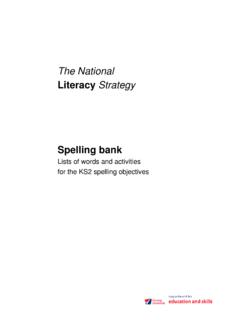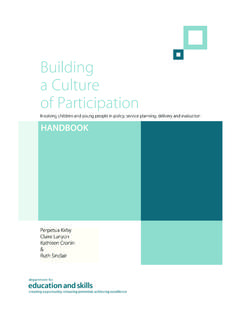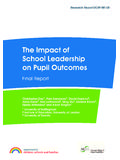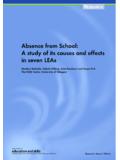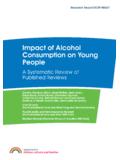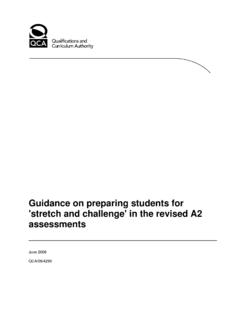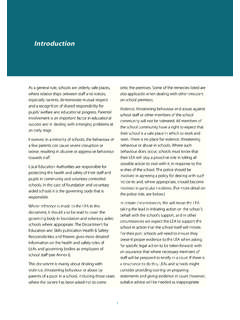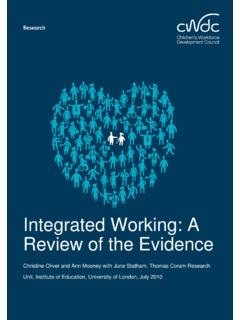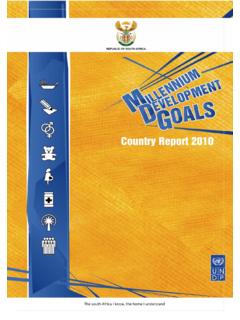Transcription of Educational performance of boys - UCL Institute of …
1 | | | @commonslibrary DEBATE PACK Number CDP 2016-0151, 23 August 2016 Educational performance of boys By Alex Adcock Paul Bolton, Laura Abreu Summary There will be a debate on the Educational performance of boys in Westminster Hall on Tuesday 6 September 2016 at It will be led by Karl McCartney. Girls generally outperform boys throughout primary, secondary and higher education. This briefing includes relevant statistics, media comment, parliamentary coverage and links to reports. Contents 1. Statistics 2 Key Stage 2 2 GCSEs 3 2. Press articles 4 3. Press releases 7 4. Parliamentary questions 12 5. Reports and further reading 16 The House of Commons Library prepares a briefing in hard copy and/or online for most non-legislative debates in the Chamber and Westminster Hall other than half-hour debates.
2 Debate Packs are produced quickly after the announcement of parliamentary business. They are intended to provide a summary or overview of the issue being debated and identify relevant briefings and useful documents, including press and parliamentary material. More detailed briefing can be prepared for Members on request to the Library. 2 Number CDP 2016-0151, 23 August 2016 1. Statistics Key Stage 2 At Key Stage 2 girls generally outperform boys on the main measure of attainment -the proportion of pupils achieving level 4 and above in reading, writing and mathematics. In 2015, in England, 77% of boys achieved this standard compared to 83% of girls. The gaps was 6 percentage points, down from 7 points in each of the previous three years. Further information is available here on the gender gaps at key stage 2 (pp.)
3 12-13). The chart below shows the gender gap by free school meal (FSM) eligibility from 2012 onwards. Source: National curriculum assessments: key stage 2, 2015 (revised) Since 2012, girls who are eligible for FSM outperformed boys eligible for FSM by a greater margin than those not eligible for FSM. The gap though has been reduced since 2012 from 10 percentage points to 8 points in 2015. The gender gap among pupils not eligible for FSM was 5 percentage points 2015 down from 8 percentage points in 2012. In terms of ethnicity, in 2015, girls outperformed boys across the major ethnic groupings where the gap on the headline indicator ranged from 5 to 6 percentage points. It was smallest for Asian and Chinese students (5 points) compared to White, Mixed and Black pupils (6 percentage points).
4 Girls outperformed boys in each ethnic subgroup in 2015. 0246810122012201320142015% pointsGender Gap in favour of girls achieving level 4 and above in Reading, Writing and Maths at Key Stage 2, 2012-15 England, State Funded SchoolsEnglandFSMAll Other PupilsEducational performance of boys 3 GCSEs Girls also outperform boys in headline GCSE results. The gap in those achieving 5+ grades A*-C including English and Maths in state-funded schools was percentage points in 2011 ( boys and girls) and increased to points in 2013 ( boys and girls). In 2014 a change in the methodology was implemented which excluded many equivalent qualifications, reduced the value of others, and excluded retakes. Despite this the gap remained broadly constant at just over 10 points, before falling to points in 2015 The chart below shows the gender gap on this headline indicator since 2011 broken down by FSM eligibility.
5 Sources: Revised GCSE and equivalent results in England: 2014 to 2015 GCSE and equivalent attainment by pupil characteristics: 2014 Since 2011 the gender gap has been smaller among pupils eligible for FSM, but it has increased over time, from percentage points in 2011 to a peak of 9 points in 2013. The gap among those not eligible for FSM peaked at points in 2013 and 2014. In 2015 girls outperformed boys on this headline indicator across all the major ethnic groupings. The gender gap ranged from points among Asian students to points for Chinese students. The next largest gap was for black students ( percentage points) followed by white pupils ( percentage points) and then those defined as mixed ( percentage points). Girls outperformed boys in each the ethnic subgroup in 2015 with the largest gap among Black Caribbean students at points.
6 02468101220112012201320142015% PointsGender Gap in favour of girls achieving 5 A*-C GCSEs including English & MathsEngland, State Funded SchoolsEnglandFSMAll other pupils4 Number CDP 2016-0151, 23 August 2016 2. Press articles Times, 18 August 2016 gender gap narrows for highest exam results Sky News, 17 August 2016 University gender Gap Reaches Record High Over 90,000 more women applied for a university course this year than men, while the number of male applicants fell. Independent, 9 August 2016 Girls do better than boys at school because they re morning people, study suggests This year, some 94,000 more girls than boys applied to British universities, but would that change if school started in the afternoon? Independent, 18 July 2016 Young people are the most disengaged with education in the north of England, report finds Report comes on the day another reveals boys are almost twice as likely as girls to have fallen behind by the time they start school.
7 Telegraph, 17 July 2016 Boys should be treated 'more like girls' to stop them falling behind at school Independent, 24 June 2016 White working class boys miss out on university places because they 'choose welfare' over aspirations, says top charity founder Generating Genius founder Dr Tony Sewell told education leaders that schools must do more by way of creating clubs and societies to aid the 'continuity of intervention' in disadvantaged communities. Telegraph, 3 June 2016 Girls set their sight on university at 13 Educational performance of boys 5 The Guardian, 3 June 2016 Girls more positive about university than boys, new study finds Study finds that by year 9 almost 65% of girls thought it was very important to go to university, compared with 58% of boys Independent, 3 June Growing gender gap in university admissions already present at age 13, says Sutton Trust report Report comes weeks after Ucas head warns gap between rich and poor 'will be eclipsed' by gender gap within just 10 years.
8 Times Educational Supplement (TES), 3 June 2016 University gender gap can be traced back to the age of 13 As early as Year 9, girls are much more likely to think a degree is important, Oxford University study finds Times Educational Supplement (TES), 26 May 2016 Why let the facts get in the way of a good story? Women will always be blamed for boys' underachievement Telegraph, 12 May 2016 'Universities should set targets for recruiting men to address embarrassing gender gap' Guardian, 12 May 2016 UK's university gender gap is a national scandal, says thinktank Report calls for efforts to recruit more male students, including a take our sons to university day Independent, 11 May 2016 Young, white men not performing as well as women in higher education, says Hepi report Head of Ucas warns rich and poor gap will be eclipsed by gender gap within a decade Guardian, 4 February 2016 Young men miss out as university gender gap remains at record levels 6 Number CDP 2016-0151, 23 August 2016 Telegraph, 5 January 2016 Our education system must stop ignoring its bias against boys Telegraph.
9 5 January 2016 Boys education 'ignored by Government policy', warns Ucas chief Independent, 6 January 2016 Head of Ucas expresses concern as recent data reveals gender gap in UK higher education is widening Comments made on same day Ucas releases data showing there to be more women than men in two thirds of courses. Times Educational Supplement (TES), 17 December 2015 Thousands of men 'missing' from university education Telegraph, 16 December 2015 gender gap at university widens, figures show Guardian, 11 November 2015 Number of white working class boys taking AS or A-levels 'shockingly low' Guardian, 13 October 2015 Boys trail girls in literacy and numeracy when starting school Guardian, 27 August 2015 Boys overtake girls in maths GCSE as coursework dropped Telegraph, 20 August 2015 GCSE results 2015: Boys catching up with girls as pupils opt for more digital-based courses Guardian, 18 August 2015 What does the university gender gap mean for the future of our society?
10 Educational performance of boys 7 3. Press releases The Sutton Trust At age 13, girls more likely than boys to believe that going to university is important 3 June 2016 The growing gender gap in university admissions is already apparent by the age of 13, when girls are more likely than boys to believe that going to university is important, according to a report published by the Sutton Trust today. Researchers from Oxford University found that by the age of 15 or 16 aspiring to go on to higher education makes a big difference to A-level choices, particularly for disadvantaged students. Drawing on data from more than 3,000 young people who have been tracked through school since the age of three for the Effective Pre-School, Primary and Secondary Education (EPPSE) project, Believing in Better by Professor Pam Sammons, Dr Katalin Toth and Professor Kathy Sylva at the University of Oxford, explores how a young person s aspirations and attitudes towards university affect their academic outcomes after GCSE.


